Bob Mackin
They call it “virtual reality.” But the online exhibit is actually the world according to the Chinese Communist Party.
In a single word, propaganda.

Scenes from the Chinese consulate’s Vancouver virtual reality exhibit promoting 72 years of CCP rule and the party’s centennial (PRC Consulate Vancouver)
The Vancouver consulate of the People’s Republic of China launched the exhibit in time for the Oct. 1 celebration of the regime’s 72nd anniversary, during the year-long commemoration of the CCP’s centennial.
The interactive exhibit is accessible only via the Chinese language version of the consulate’s website, is set inside the Chinese government’s heavily secured and highly surveilled Vancouver diplomatic mansion in Shaughnessy and begins with a video lecture from consul general Tong Xiaoling.
Tong, who is arguably Xi Jinping’s top woman in North America, delivers the scripted remarks while standing in front of a blue map that highlights both Beijing and Vancouver in red.
It continues with a self-guided tour through a digital exhibition hall divided into four themes: “Celebrating the 100th Anniversary of the Founding of the Communist Party of China”, “2022 Beijing Winter Olympics”, “Fighting against the New Crown Pneumonia Epidemic”, and “Great Xinjiang”.”
Posters near the door list the rights and responsibilities of CCP members, including a line that states obedience to the party is required. You’ve been warned.
Click around and you will find historical photos of the 1945 CCP congress that established “Mao Zedong Thought” as official party dogma and Chairman Mao’s Oct. 1, 1949 declaration of CCP rule.
The centennial gallery follows CCP milestones, including the People’s Liberation Army invasion of Tibet, joining the United Nations, exploring space, cooperation with Arabian and African leaders (but no mention of the recent alliance with Afghanistan’s Taliban), the takeover of Hong Kong and adopting “Xi Jinping Thought.”

Scenes from the Chinese consulate’s Vancouver virtual reality exhibit promoting 72 years of CCP rule and the party’s centennial (PRC Consulate Vancouver)
The Olympic hall includes a video that climaxes with Xi welcoming the world to China. In reality, foreign spectators are not welcome next February, due to the ongoing global pandemic that began in Wuhan during or after the 2019 World Military Games. Nobody seems to know for sure, and Xi is in no rush for the world to know who knew what and when they knew it.
The video in the Xinjiang wing is called “The Sublime Beauty of Xinjiang,” and features vast landscapes of the beauty of the region. Even images of wild horses running free. It looks like paradise. When can I visit?
Except reality says otherwise. A million or more Uyghur Muslims in Xinjiang have no freedom. Governments of Canada, U.S. and U.K. describe China’s program of mass-incarceration, brainwashing, forced marriages and sterilization as cultural genocide at the hands of the CCP’s Han ethnic majority.
The shoddy treatment of Uyghurs sparked international campaigns to relocate or boycott the Beijing Games, which some activists compare to Hitler’s Berlin 1936 Games. It was a theme of the anti-CCP protest outside the consulate on Oct. 1.
Tong’s statement on the consulate website says the CCP has “always upheld the original mission of seeking happiness for the Chinese people and rejuvenation for the Chinese nation, united and led the Chinese people in bloody struggles, defying sacrifices, and created great achievements that have attracted worldwide attention.”
It continues: “The great leap from rising to becoming strong has profoundly changed the direction and process of the development of the Chinese nation after modern times, profoundly changed the future and destiny of the Chinese people and the Chinese nation, and profoundly changed the trend and pattern of world development.”
The exhibit obviously doesn’t contain anything about the Tiananmen Square Massacre, the late Nobel Peace Prize winner Liu Xiaobo or the hostage-taking of Canada’s Two Michaels.
It does stress the usual CCP themes, such as economic growth, the eradication of absolute poverty, common prosperity and international trade: “In 2021, despite the impact of the epidemic and the political relations between the two countries, China and Canada will maintain close ties in the economic and trade fields.”
The statement on the website also alluded to “peaceful reunification,” which is the code phrase for the CCP’s goal of annexing self-governing Taiwan. Beijing considers the democratic island nation to be a rebel province.
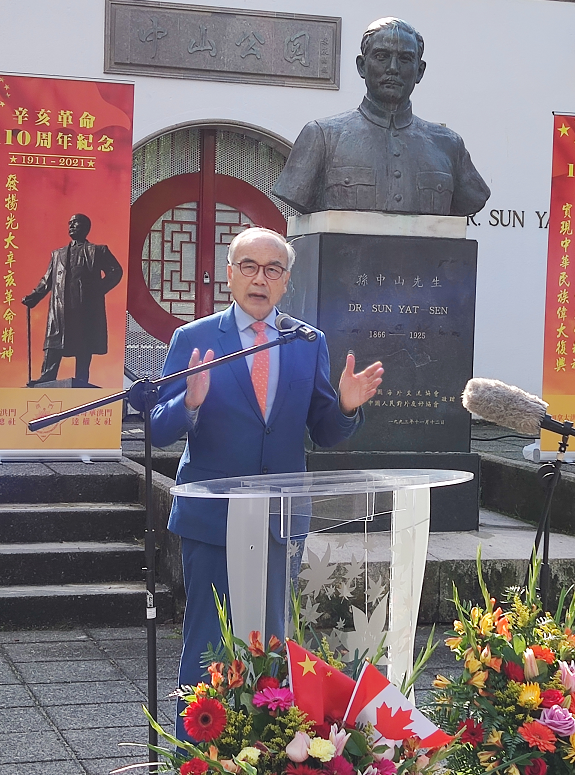
NDP minister George Chow at an Oct. 3 Chinatown ceremony (PRC Consulate Vancouver)
Taiwan observes its national day every Oct. 10, the anniversary of the 1911 Wuchang Uprising that eventually toppled more than two millennia of imperial rule in Mainland China.
The occasion is known instead in CCP circles as the Anniversary of the Xinhai Revolution. Allies of the PRC consulate marked the 110th anniversary on Oct. 3 with Tong in a ceremony at Dr. Sun Yat-Sen Classical Chinese Garden in Vancouver’s Chinatown.
NDP minister of state for trade George Chow gave a speech in front of Sun’s statue. Also appearing were Wei Renmin of the Canadian Alliance of Chinese Associations, Harris Niu of the Canadian Community Services Association, and Guo Yinghua (aka Fred Kwok) of the Vancouver Chinese Benevolent Association. Wei, Niu and Kwok’s groups are associated with the CCP’s United Front foreign influence campaign.
Tong told attendees on Oct. 3 that Chinese Communists inherited Sun’s revolutionary legacy a century ago.
“For one hundred years, the Communist Party of China has united and led the Chinese people, writing the most magnificent epic in the history of the Chinese nation for thousands of years with the heroism of ‘for the sake of sacrifice and ambition, dare to teach the sun and the moon to change the sky’,” she said.
A sky so polluted, that Chinese often see neither the sun nor the moon.
Support theBreaker.news for as low as $2 a month on Patreon. Find out how. Click here.
Bob Mackin
They call it “virtual reality.” But











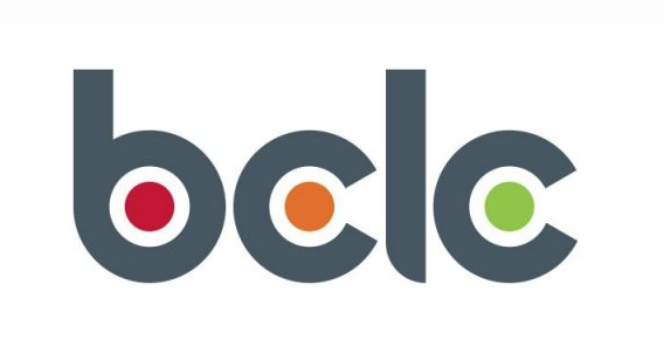

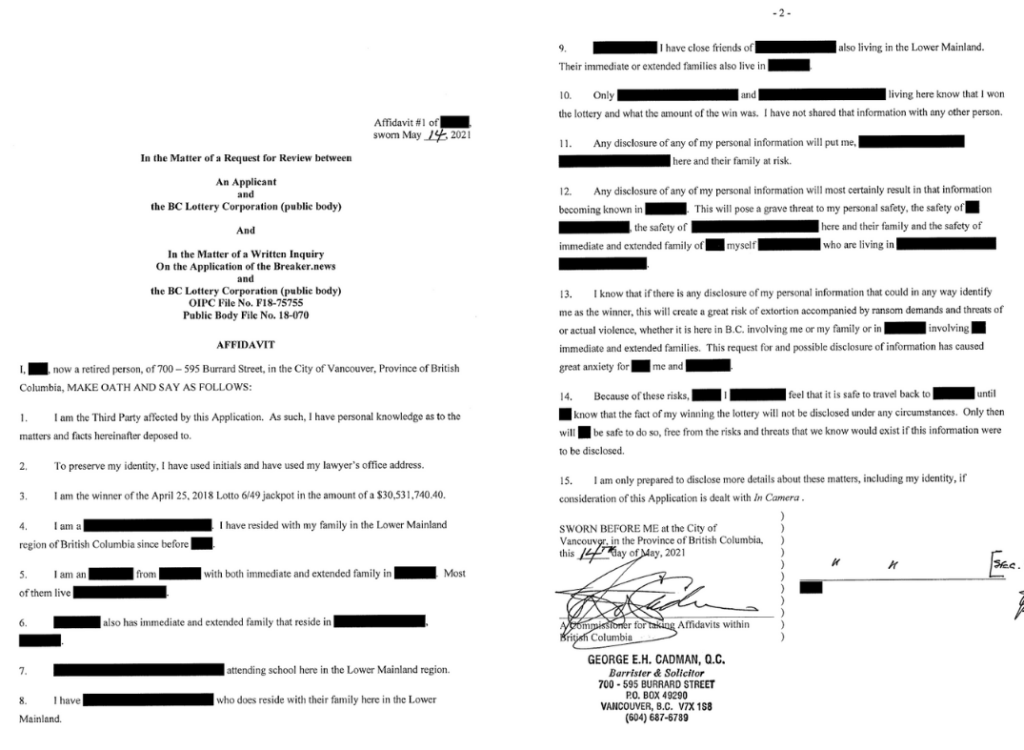

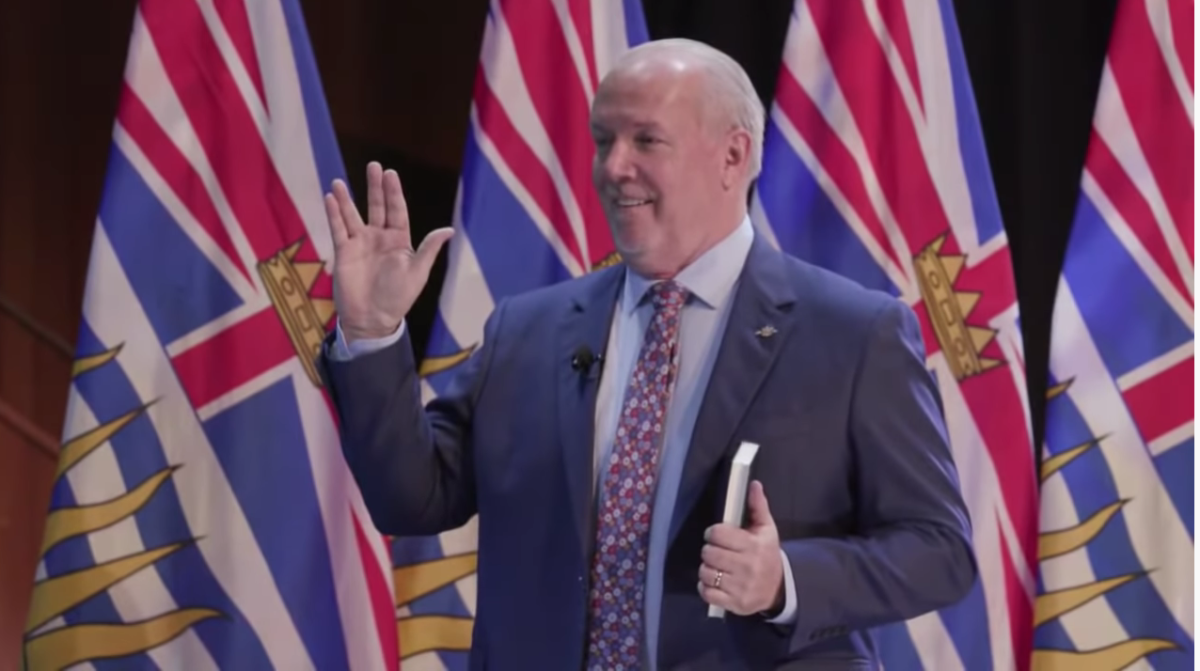
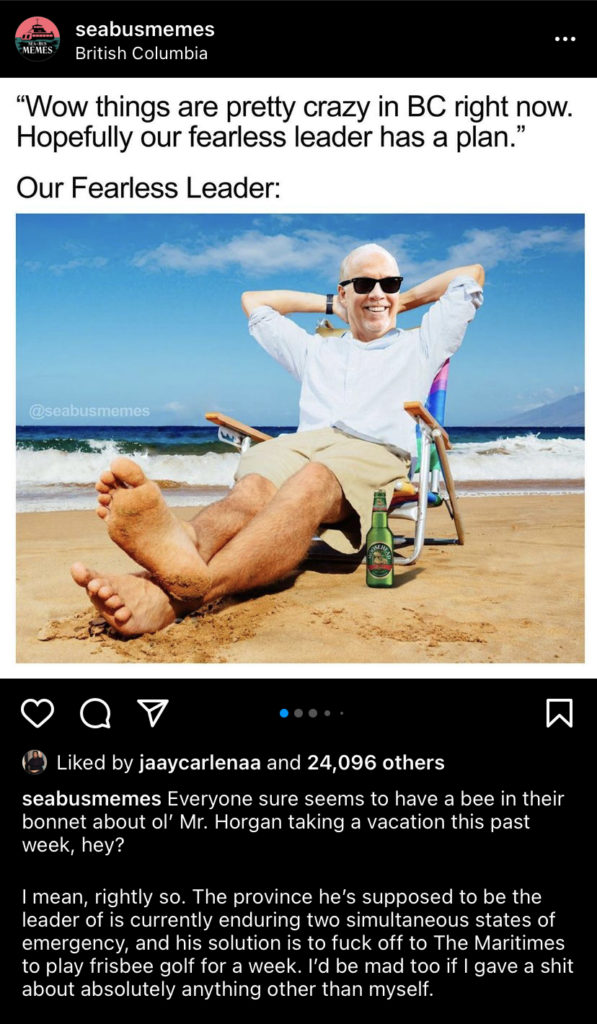

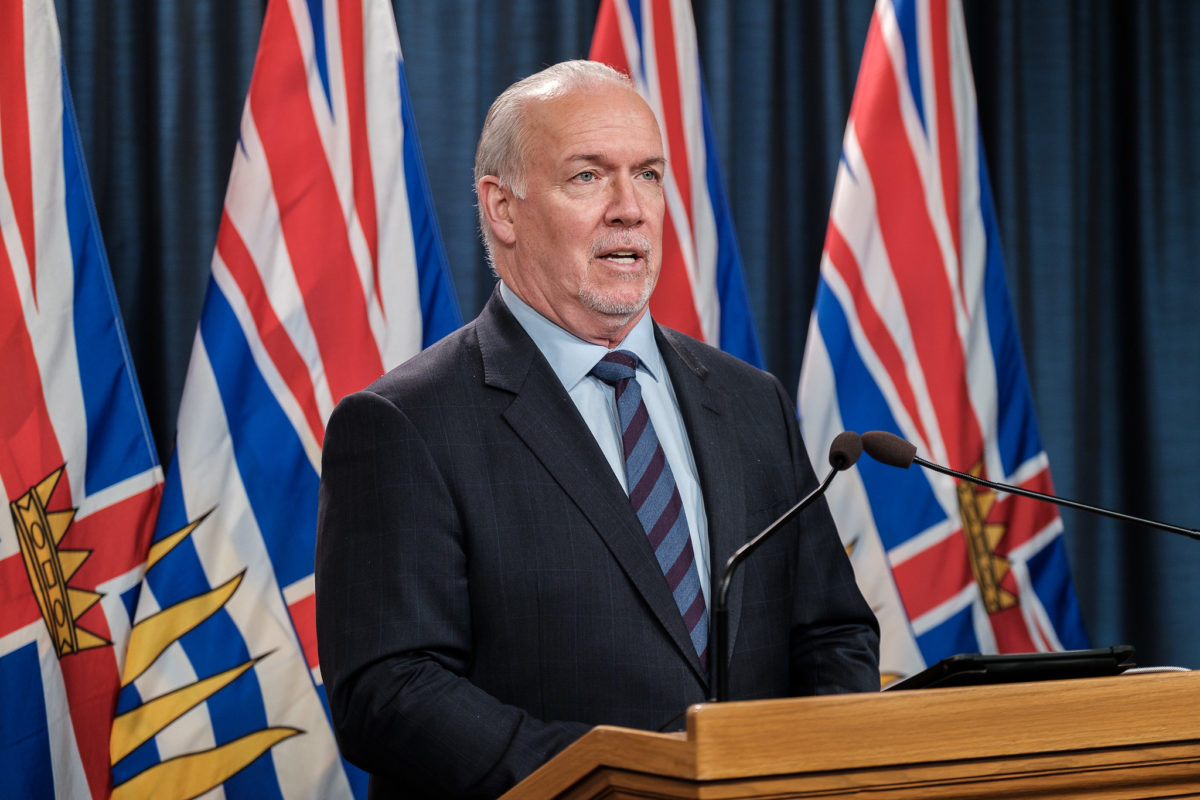





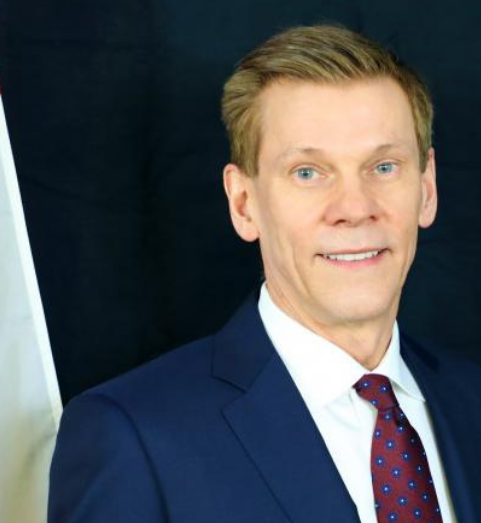
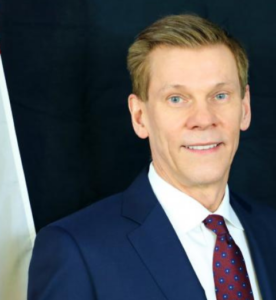



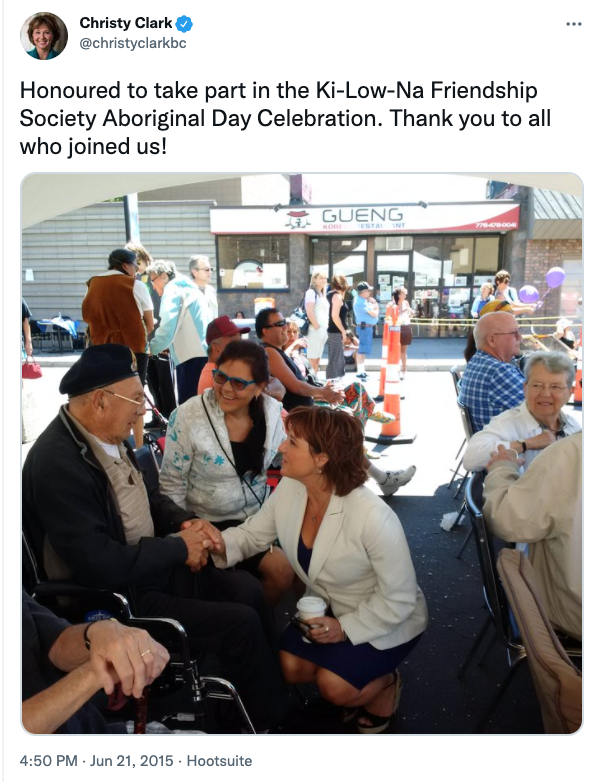






 Prime Minister’s Office staff originally claimed he was spending the new federal holiday in Ottawa. They were forced to admit he was in Tofino, after images from flight radar websites hit social media, showing a Canadian Forces Challenger CC-144 jet from the national capital had landed.
Prime Minister’s Office staff originally claimed he was spending the new federal holiday in Ottawa. They were forced to admit he was in Tofino, after images from flight radar websites hit social media, showing a Canadian Forces Challenger CC-144 jet from the national capital had landed.
